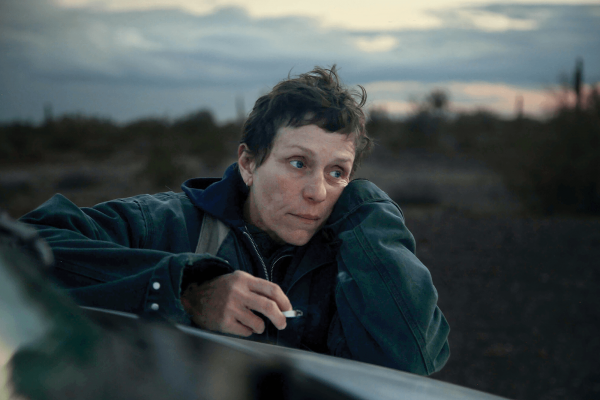THE LAST CHAPTER of Hebrews in the New Testament begins with a reminder of how to serve God and build a healthy community: “Do not neglect to show hospitality to strangers, for by doing that some have entertained angels without knowing it” (13:2). Biblical hospitality takes many forms, but it consistently involves selfless sharing of space, resources, and—perhaps most importantly—attention. To share part of your life with another person, and allow them to share in return, is to show that they matter.
Nomadland, Chloé Zhao’s contemporary American road film, is full of biblical hospitality. By turning a documentary-style eye on a real community of nomads who otherwise slip through the cracks of society, writer and director Zhao’s film—which won 2021 Golden Globes for best motion picture and best director—provides its actors/subjects with space to be seen, heard, and known.
Like The Rider, Zhao’s previous film, Nomadland combines elements of narrative and documentary filmmaking by crafting a story around the lived experiences of real people. Our guide, Fern (Frances McDormand), leaves her home in Empire, Nev., to live on the road. Fern is part of a subculture of older adults who, left in dire financial straits by the 2008 recession, live in vans as modern-day nomads, picking up gig work across the country. As Fern travels, she makes friends with several fellow nomads (most of them real people playing themselves) who share their stories with her.
Read the Full Article

